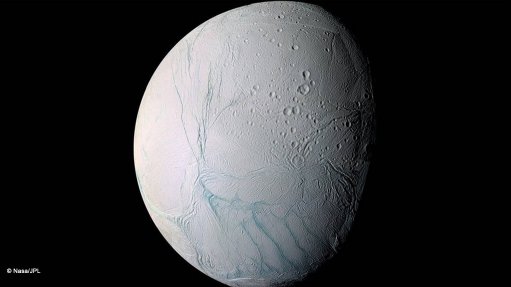
Enceladus hosts on ocean under its ice crust, which might contain life
Photo by: Nasa/JPL
A theme that has been expounded more than once in science fiction is of alien organisms being brought back to Earth, endangering human life. In reality, scientists have long been concerned with this potential threat. Simultaneously, they have also been concerned about the inverse danger: of space missions from Earth accidently carrying terrestrial bacteria and/or viruses to other worlds in our Solar System and contaminating them.
With these concerns in mind, open science platform “Frontiers” has highlighted the role and work of the Planetary Protection Panel of the international Committee on Space Research (COSPAR). COSPAR is an independent entity that was created by the then International Council of Scientific Unions (now the International Science Council) in 1958.
The Planetary Protection Panel’s current chairperson is Dr Athena Coustenis of France’s National Centre for Scientific Research, and Paris University, while the vice-chairpersons are Niklas Hedman of the United Nations Office for Outer Space Affairs and Professor Peter Doran of the University of Louisiana, in the US. In a joint piece, they pointed out that developments in space exploration were making these concerns more acute.
“An international policy is thus needed to help prevent the harmful introduction of biological and organic contamination of space missions, to make sure that future scientific exploration and discoveries do not adversely impact the new worlds they visit,” they wrote. “Similarly, protocols should be established for returned alien material to Earth. And because space exploration is experiencing considerable growth, with missions now operated by national space agencies, non-governmental and also private sector entities, it is increasingly important to ensure that all missions comply with this policy and that relevant requirements and guidelines are shared with all players.”
COSPAR calls this the Planetary Protection Policy, and first developed such a policy decades ago. Updating and revising the policy, to keep up with new space developments, is the responsibility of the Planetary Protection Panel. The panel is appointed by the COSPAR Bureau and has 25 members, composed of representatives of 12 space agencies, and an equal number of experts from the wider scientific community, plus ex-officio members.
The Planetary Protection Panel organises workshops, meetings on topics, and sessions at COSPAR scientific assemblies, which include the participation of representatives of industry, the private sector and other interested parties, as well as observers. These events, international by design and nature, allow the panel to draw up new recommendations to update the policy.
The Planetary Protection Policy now has five categories, based on the mission objectives of specific space probes. These cover missions such as fly-bys or orbits of planets, icy moons or comets; missions designed to land on these worlds and bodies, to explore them, undertake environmental analysis and/or seek signs of extinct or still extant life, and perhaps return samples to Earth.
“The panel’s activities deal with the individual needs of a space mission while exercising swift care and expertise to ensure sustainable exploration of the solar system,” explained Coustenis, Hedman and Doran. “When an update is made to the policy, the panel informs the international space community through publications and presentations at international meetings. The panel also welcomes community input on space research and will assist space stakeholders in any way – by co-sponsoring new studies, community surveys, workshops or focused conferences.”